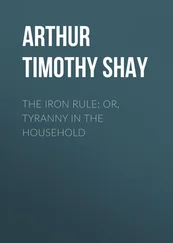Timothy Arthur - Danger; Or, Wounded in the House of a Friend
Здесь есть возможность читать онлайн «Timothy Arthur - Danger; Or, Wounded in the House of a Friend» — ознакомительный отрывок электронной книги совершенно бесплатно, а после прочтения отрывка купить полную версию. В некоторых случаях можно слушать аудио, скачать через торрент в формате fb2 и присутствует краткое содержание. Жанр: foreign_sf, literature_19, foreign_antique, foreign_prose, на английском языке. Описание произведения, (предисловие) а так же отзывы посетителей доступны на портале библиотеки ЛибКат.
- Название:Danger; Or, Wounded in the House of a Friend
- Автор:
- Жанр:
- Год:неизвестен
- ISBN:нет данных
- Рейтинг книги:3 / 5. Голосов: 1
-
Избранное:Добавить в избранное
- Отзывы:
-
Ваша оценка:
- 60
- 1
- 2
- 3
- 4
- 5
Danger; Or, Wounded in the House of a Friend: краткое содержание, описание и аннотация
Предлагаем к чтению аннотацию, описание, краткое содержание или предисловие (зависит от того, что написал сам автор книги «Danger; Or, Wounded in the House of a Friend»). Если вы не нашли необходимую информацию о книге — напишите в комментариях, мы постараемся отыскать её.
Danger; Or, Wounded in the House of a Friend — читать онлайн ознакомительный отрывок
Ниже представлен текст книги, разбитый по страницам. Система сохранения места последней прочитанной страницы, позволяет с удобством читать онлайн бесплатно книгу «Danger; Or, Wounded in the House of a Friend», без необходимости каждый раз заново искать на чём Вы остановились. Поставьте закладку, и сможете в любой момент перейти на страницу, на которой закончили чтение.
Интервал:
Закладка:
"Good-night, dear, and God bless you!" Mr. Ridley had said, in a voice that was very tender, as he stooped over and kissed his wife. No wonder that all the light went out of her face the moment she was alone, nor that a shadow fell quickly over it, nor that from beneath the fringes of her shut eyelids tears crept slowly and rested upon her cheeks. If her husband had left her for the battlefield, she could not have felt a more dreadful impression of danger, nor have been oppressed by a more terrible fear for his safety. No wonder that her nurse, coming into the chamber a few minutes after Mr. Ridley went out, found her in a nervous chill.
The spacious and elegant drawing-rooms of Mr. and Mrs. Birtwell were crowded with the elite of the city, and the heart of the former swelled with pride as he received his guests and thought of their social, professional or political distinction, the lustre of which he felt to be, for the time, reflected upon himself. It was good to be in such company, and to feel that he was equal with the best. He had not always been the peer of such men. There had been an era of obscurity out of which he had slowly emerged, and therefore he had the larger pride and self-satisfaction in the position he now held.
Mrs. Birtwell was a woman of another order. All her life she had been used to the elegancy that a wealthy parentage gave, and to which her husband had been, until within a few years, an entire stranger. She was "to the manner born," he a parvenu with a restless ambition to outshine. Familiarity with things luxurious and costly had lessened their value in her eyes, and true culture had lifted her above the weakness of resting in or caring much about them, while their newness and novelty to Mr. Birtwell made enjoyment keen, and led him on to extravagant and showy exhibitions of wealth that caused most people to smile at his weakness, and a good many to ask who he was and from whence he came that he carried himself so loftily. Mrs. Birtwell did not like the advanced position to which her husband carried her, but she yielded to his weak love of notoriety and social eclat as gracefully as possible, and did her best to cover his too glaring violations of good taste and conventional refinement. In this she was not always successful.
Of course the best of liquors in lavish abundance were provided by Mr. Birtwell for his guests. Besides the dozen different kinds of wine that were on the supper-table, there was a sideboard for gentlemen, in a room out of common observation, well stocked with brandy, gin and whisky, and it was a little curious to see how quickly this was discovered by certain of the guests, who scented it as truly as a bee scents honey in a clover-field, and extracted its sweets as eagerly.
Of the guests who were present we have now to deal chiefly with Mr. Ridley, and only incidentally with the rest. Dr. Hillhouse was there during the first part of the evening, but went away early—that, is, before twelve o'clock. He remained long enough, however, to do full justice to the supper and wines. His handsome and agreeable young associate, Dr. Angler, a slight acquaintance with whom the reader has already, prolonged his stay to a later hour.
The Rev. Dr. Elliott was also, among the guests, displaying his fine social qualities and attracting about him the young and the old. Everybody liked Dr. Elliott, he was so frank, so cordial, free and sympathetic, and, withal, so intelligent. He did not bring the clergyman with him into a gay drawing-room, nor the ascetic to a feast. He could talk with the banker about finance, with the merchant about trade, with the student or editor about science, literature and the current events of the day, and with young men and maidens about music and the lighter matters in which they happened to be interested. And, moreover, he could enjoy a good supper and knew the flavor of good wine. A man of such rare accomplishments came to be a general favorite, and so you encountered Mr. Elliott at nearly all the fashionable parties.
Mr. Ridley had met the reverend doctor twice, and had been much pleased with him. What he had heard him say about the healthy or rather saving influences of pure wine had taken a strong hold of his thoughts, and he had often wished for an opportunity to talk with him about it. On this evening he found that opportunity. Soon after his arrival at the house of Mr. Birtwell he saw Mr. Elliott in one of the parlors, and made his way into the little group which had already gathered around the affable clergyman. Joining in the conversation, which was upon some topic of the day, Mr. Ridley, who talked well, was not long in awakening that interest in the mind of Mr. Elliott which one cultivated and intelligent person naturally feels for another; and in a little while, they had the conversation pretty much to themselves. It touched this theme and that, and finally drifted in a direction which enabled Mr. Ridley to refer to what he had heard Mr. Elliott say about the healthy effect of pure wine on the taste of men whose appetites had become morbid, and to ask him if he had any good ground for his belief.
"I do not know that I can bring any proof of my theory," returned Mr. Elliott, "but I hold to it on the ground of an eternal fitness of things. Wine is good, and was given by God to make glad the hearts of men, and is to be used temperately, as are all other gifts. It may be abused, and is abused daily. Men hurt themselves by excess of wine as by excess of food. But the abuse of a thing is no argument against its use. If a man through epicurism or gormandizing has brought on disease, what do you do with him? Deny him all food, or give him of the best in such quantities as his nutritive system can appropriate and change into healthy muscle, nerve and bone? You do the latter, of course, and so would I treat the case of a man who bad hurt himself by excess of wine. I would see that he had only the purest and in diminished quantity, so that his deranged system might not only have time but help in regaining its normal condition."
"And you think this could be safely done?" said Mr. Ridley.
"That is my view of the case."
"Then you do not hold to the entire abstinence theory?"
"No, sir; on that subject our temperance people have run into what we might call fanaticism, and greatly weakened their influence. Men should be taught self-control and moderation in the use of things. If the appetite becomes vitiated through over-indulgence, you do not change its condition by complete denial. What you want for radical cure is the restoration of the old ability to use without abusing. In other words, you want a man made right again as to his rational power of self-control, by which he becomes master of himself in all the degrees of his life, from the highest to the lowest."
"All very well," remarked Dr. Hillhouse, who had joined them while Mr. Elliott was speaking. "But, in my experience, the rational self-control of which you speak is one of the rarest things to be met with in common life, and it may be fair to conclude that the man who cannot exercise it before a dangerous habit has been formed will not be very likely to exercise it afterward when anything is done to favor that habit. Habits, Mr. Elliott, are dreadful hard things to manage, and I do not know a harder one to deal with than the habit of over-indulgence in wine or spirits. I should be seriously afraid of your prescription. The temperate use of wine I hold to be good; but for those who have once lost the power of controlling their appetites I am clear in my opinion there is only one way of safety, and that is the way of entire abstinence from any drink in which there is alcohol, call it by what name you will; and this is the view now held by the most experienced and intelligent men, in our profession."
A movement in the company being observed, Mr. Elliott, instead of replying, stepped toward a lady, and asked the pleasure of escorting her to the supper-room. Dr. Hillhouse was equally courteous, and Mr. Ridley, seeing the wife of General Logan, whom he had often met in Washington, standing a little way off, passed to her side and offered his arm, which was accepted.
Читать дальшеИнтервал:
Закладка:
Похожие книги на «Danger; Or, Wounded in the House of a Friend»
Представляем Вашему вниманию похожие книги на «Danger; Or, Wounded in the House of a Friend» списком для выбора. Мы отобрали схожую по названию и смыслу литературу в надежде предоставить читателям больше вариантов отыскать новые, интересные, ещё непрочитанные произведения.
Обсуждение, отзывы о книге «Danger; Or, Wounded in the House of a Friend» и просто собственные мнения читателей. Оставьте ваши комментарии, напишите, что Вы думаете о произведении, его смысле или главных героях. Укажите что конкретно понравилось, а что нет, и почему Вы так считаете.












